-
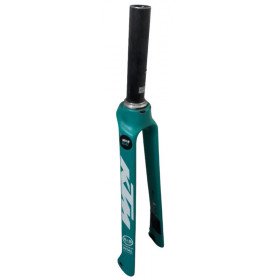 New product UsedKTM F11 carbon fork disc
New product UsedKTM F11 carbon fork disc- €79.99
-
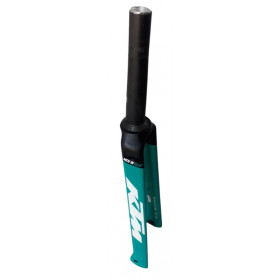 Used
Used -
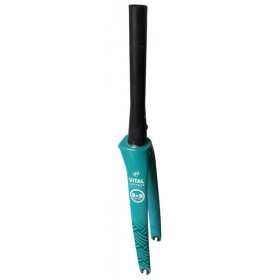 New product Used
New product Used -
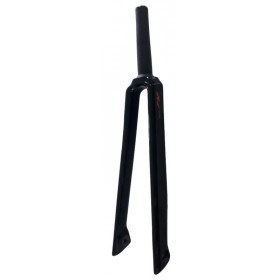 Used
Used -
 Used
Used -
 UsedRoad bike Lapierre fork
UsedRoad bike Lapierre fork- €49.99
-
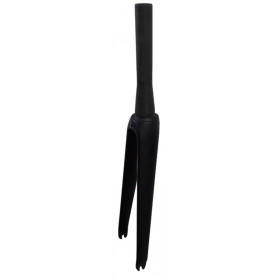 UsedCarbon road bike fork
UsedCarbon road bike fork- €49.99
-
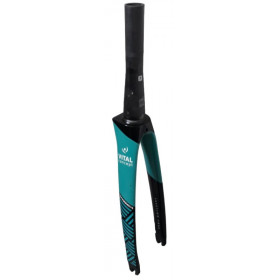 Used
Used -
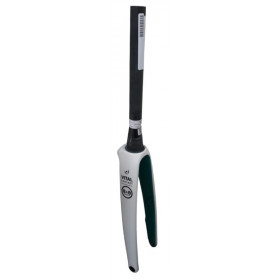 New product
New product -
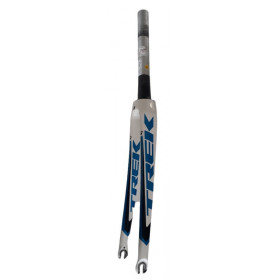 Used
Used -
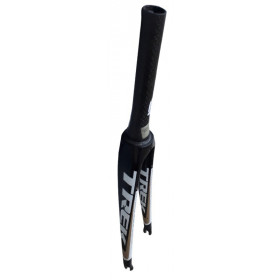 Used
Used -
 UsedGiant compact road bike fork
UsedGiant compact road bike fork- €54.99
-
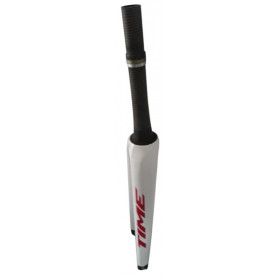 New productCarbon fork Time
New productCarbon fork Time- €49.99
-
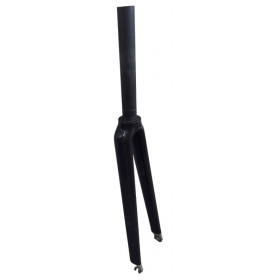 More detailsUsed Out-of-StockCarbon road bike fork black
More detailsUsed Out-of-StockCarbon road bike fork black- €49.99
-
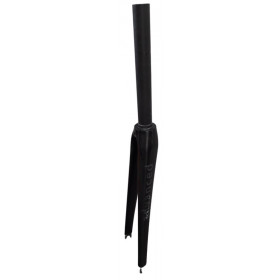 More detailsUsed Out-of-Stock
More detailsUsed Out-of-Stock -
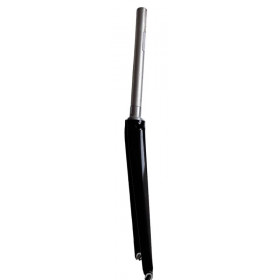 More detailsNew product Out-of-Stock
More detailsNew product Out-of-Stock
Showing 1-16 of 16 item(s)
Carbon bike forks are prized for their lightweight, responsiveness and ability to absorb vibrations, making them an ideal choice for road, gravel and high-end mountain biking. Although they are more expensive than those made of aluminum or steel, they offer an excellent compromise between performance and comfort, with characteristics suitable for cyclists looking for high quality equipment.
Features of carbon bicycle forks
1. Lightness and maneuverability:
- Carbon is significantly lighter than steel or aluminum, reducing the overall weight of the bike. This improves handling and makes climbing easier, particularly on road and gravel bikes.
- This lightness makes carbon forks ideal for competitions and long rides, where every gram counts to optimize performance.
2. Vibration absorption:
- Carbon has a natural ability to absorb vibrations, making it a material of choice for cyclists looking for greater comfort on the road. This capability is particularly useful for riding on rough or paved roads, where a carbon fork softens impacts and reduces arm fatigue.
- On gravel trails, carbon helps absorb shock from mixed terrain, providing a smoother ride.
3. Rigidity and responsiveness:
- The carbon forks provide excellent lateral rigidity, ensuring precise steering transmission and better stability, especially during fast corners.
- At the same time, they remain flexible in the vertical axis, which improves comfort without sacrificing performance. This combination of stiffness and flexibility makes carbon popular for performance road bikes.
4. Aerodynamic design:
Carbon forks are often profiled to reduce air resistance, a valuable feature for competition road bikes. This aerodynamic design allows you to gain speed, particularly in races or time trials.
5. Composite materials and advanced manufacturing techniques:
- Carbon forks are made from layers of carbon fiber arranged in different directions to optimize their strength and flexibility. These layers are laminated in a way to provide increased rigidity where it is needed, while maintaining minimal weight.
- Advanced manufacturing techniques, such as unibody molding, strengthen the structural integrity of the forks and reduce their weight by eliminating welds and joints.
6. Brake Compatibility:
- Disc brakes: Many modern carbon forks are compatible with disc brakes, providing better stopping power and increased safety, especially on gravel and cyclocross bikes.
- Rim brakes: Carbon forks for road bikes are often designed for rim brakes, although disc is becoming more common on newer models.
7. Weather resistance:
- Carbon does not rust, unlike steel, and resists bad weather, making it particularly durable. However, it is more sensitive to violent impacts, and a significant impact can irreversibly damage a carbon fork.
- The finish is often smooth, easy to clean, and corrosion resistant, making it a practical material for cyclists riding in a variety of weather conditions.
Specificities by type of bike
1. Road bike:
- Weight: The weight of carbon forks for road bikes can drop below 400g, which helps cyclists gain performance.
- Aerodynamics: Carbon forks are often profiled for road models, reducing air resistance and improving efficiency, making them a preferred choice for competitions.
2. Gravel and cyclocross bike:
- Wide Tire Compatibility: Carbon gravel forks are designed to accommodate wider tires (up to 45mm and above), providing more grip and comfort on varied terrain.
- Increased Strength: Although lighter, carbon gravel forks are built to withstand rough terrain and provide vertical flexibility that helps absorb shock from unpaved roads.
3. Mountain biking:
Rigid and semi-rigid forks: On certain high-end mountain bikes or for cross-country practices, we find rigid or semi-rigid carbon forks which combine lightness and responsiveness, often favored for competition courses.
Integrated Suspension: Although rare, some carbon mountain bike forks feature integrated suspension, combining the light weight of carbon with shock absorption for technical trails.
Advantages and disadvantages of carbon forks
Benefits :
- Lightness and efficiency: Their low weight optimizes performance, particularly when climbing.
- Vibration absorption: Increased comfort on rough roads and cobblestones.
- Rigidity: Good responsiveness and power transmission in turns.
- Aesthetics and design: Contoured for a modern and aerodynamic look.
Disadvantages:
- Cost: Carbon forks are more expensive than aluminum or steel models.
- Fragility in the event of shock: Although resistant to vibrations, carbon forks can be sensitive to significant impacts.
- Regular maintenance and inspection: Carbon requires regular checks, as microcracks, often invisible, can compromise safety.
In summary
Carbon forks are a preferred choice for riders looking for high performance, optimal comfort and modern aesthetics. Whether for a light road bike, a robust gravel bike or a responsive mountain bike, they provide increased lightness and remarkable vibration absorption capacity. Although they require a higher investment, their characteristics make them an ideal option for intensive practices and long outings, offering unrivaled comfort, durability and precision.